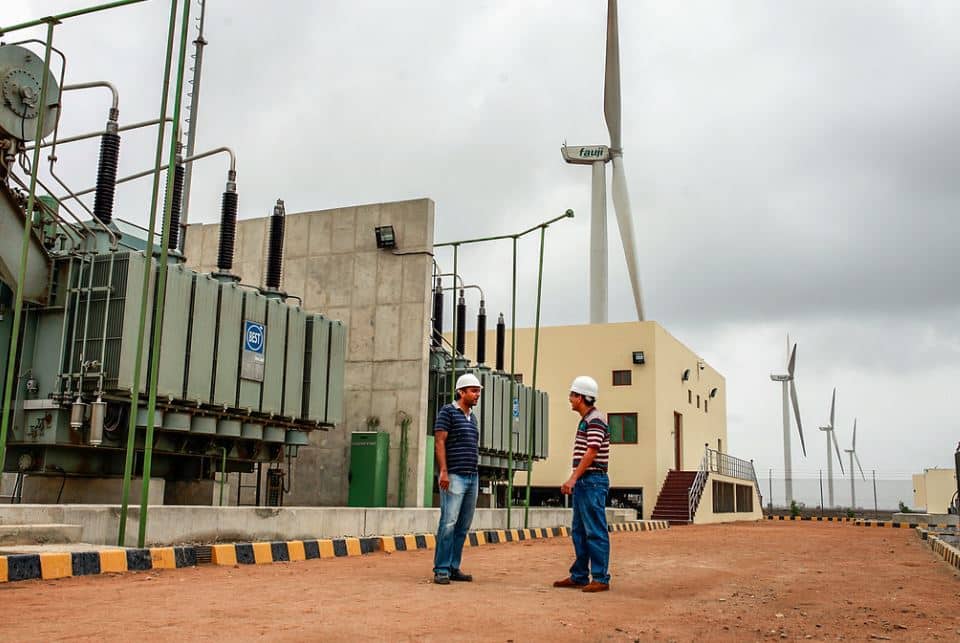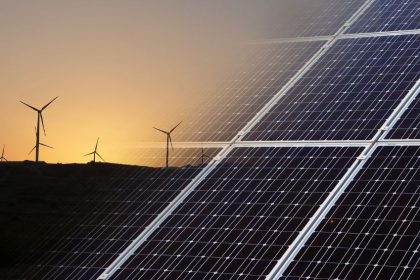House Votes to Impose Nationality Requirements on Offshore Energy Workers

WASHINGTON — Advocates for the just-blossoming U.S. offshore wind energy sector are up in arms over a provision included in the 2023 National Defense Authorization Act that would impose new nationality requirements for crew members working on offshore energy projects.
Officially known as the American Offshore Worker Fairness Act, the measure was sponsored in the Senate by Sen. Bill Cassidy, R-La., and in the House by Reps. Garret Graves, R-La., and John Garamendi, D-Calif.
The lawmakers contend the provision will close a loophole in the Outer Continental Shelf Lands Act that was intended to promote the hiring of U.S. offshore workers in U.S. offshore energy activities, while also ensuring these workers had access to offshore energy work in foreign waters.
Because of the loophole in the original act, foreign workers have been hired to work on U.S. energy projects, while U.S. workers have not had reciprocal access to similar jobs in foreign waters.
At the same time, the lawmakers have said, because of the loophole, employers in the sector have been able to pay these foreign workers far less than American workers would demand.
“U.S. and Louisiana mariners and maritime companies lose when foreign vessels, which do not pay U.S. taxes, business taxes or payroll taxes, take advantage of loopholes to hire foreign workers for half the cost. This bill levels the playing field to give the American worker a fair shot,” Cassidy said in a statement provided to The Well News.
The measure included in the new NDAA would apply not only to wind energy jobs, but also those on oil rigs for the oil and gas industry.
To qualify to work under the provision, crew members would either have to be citizens or permanent residents or be from the same country from which their ship is flagged.
In a written statement, Heather Zichal, CEO of the American Clean Power Association, called the provisions “a gut punch” to offshore wind projects.
“It has nothing to do with making the Coast Guard any stronger. [The provision is tucked into the U.S. Coast Guard Authorization Act]. It doesn’t belong in the law. It certainly doesn’t belong in the NDAA,” Zichal said.
“We know that if this largely unvetted crewing provision becomes law, it will delay offshore wind development and stymie the nation’s goal of deploying 30 GWs of U.S. offshore wind by 2030,” she continued. “We can’t keep saying we support clean energy and clean energy jobs but then pass laws that undermine them.”
“Offshore wind can create up to 83,000 new American jobs, but today’s vote undermines that possibility by imposing vessel crewing requirements before there are enough domestic vessels available to do the work,” Zichal said. “It’s a matter of math, not ideology. Today, the U.S.-flagged specialized construction vessels simply do not exist. Today, there aren’t nearly enough U.S. mariners trained to operate them. Congress is imposing a provision that will only hurt American workers who won’t be able to build the offshore installations today and tomorrow — without any benefit.
“Let’s be clear. If we stay on track, coastal communities will benefit from clean and reliable energy, more local jobs and growing supply chains,” she said, adding, “As these projects are built, all of the vessels going from U.S. ports to offshore turbines will be made in America and more than 80% of the crews on board will be American mariners.
“But if we allow this provision to veer us off track, long-term power offtake contracts and awards will all be put at risk — for nothing,” Zichal said.
Her position is supported by a coalition of executives who wrote House and Senate leaders last month, telling them as written, the provision poses “an existential threat to the future of offshore wind in the United States.”
Further, if enacted, “the immediate result would be the delay and potential cancelation of the 19 offshore wind projects with power offtake contracts or awards.”
But not everyone agrees with these sentiments. In a letter of its own to House and Senate leaders, the Offshore Marine Service Association said the American Offshore Worker Fairness Act “will provide parity between U.S.-flagged and foreign-flagged vessels operating in U.S. offshore energy activities and ensure that U.S. energy creation means U.S. jobs.”
In the letter, association President and CEO Aaron Smith said, “the simple fairness contained in the legislation has resonated with employers and labor leaders from Oregon to Massachusetts. It’s clear, all those who work in the U.S. maritime industry understand that our mariners, shipyard workers and other professionals are second to none, but they can’t compete with foreign counterparts that are paid second-rate wages.”
“Foreign maritime workers have been given a leg up on our American workforce for decades,” said Matthew Paxton, president of the Shipbuilders Council of America. “This legislation is a crucial step in closing this loophole.”
A congressional aide familiar with the background of proposed nationality rule said the wind energy advocates who oppose the measure are dead wrong in their assertion that the measure is intended to “kill projects.”
“That’s not what we’re trying to do,” the aide said. “I mean, obviously, we represent a state that has a huge oil and gas presence … and that sector will be affected by this requirement as well. It doesn’t just target one source of energy or another.
“That said, and just to be clear: We are not trying to kill oil and gas projects and we are not trying to kill offshore wind projects either,” the aide continued. “Along with that, remember, there are a lot of businesses in South Louisiana and along the Gulf Coast that have a lot of technical know-how through decades of operating in the Gulf of Mexico, who can tailor their businesses in different ways to support [the wind energy industry].
“This is a new business opportunity for these companies and we would not want to do anything that inhibits those businesses from growing, hiring more people, and doing more things that are ultimately beneficial not only for offshore energy development, but their businesses as well.”
All that said, the aide explained the real thrust of the provision is to “rectify a competitive disadvantage” written into earlier statutes.
“That’s really the issue we’re trying to solve here … and Sen. Cassidy and the House sponsors of the bill have all said they are willing to be reasonable and negotiate and try to strike a compromise over concerns that have been raised,” the aide said.
“Sadly, the offshore wind industry has not been willing to do that, and they’re doubled down on their efforts to try to keep anything like this out of the Senate Coast Guard authorization bill.”
So far, there has been no indication that anyone on Capitol Hill is eager to see the provision removed or slowing down the process through which the NDAA is authorized.
The defense spending authorization is generally considered one of the must-pass bills of the summer, often acted on by both chambers before the extended August recess.
The House passed the National Defense Authorization Act by a vote of 329-101 on July 14.
The bill authorizes $839 billion for military spending, about $37 billion more than the administration requested.
The Senate has not yet scheduled a vote on its version of the NDAA, but even after it does vote, the two versions of the bill will have to be reconciled through a House-Senate conference before a final vote that would send it to the president’s desk for his signature.
Asked about the odds of the Senate including the nationality bill in its version of the NDAA, the congressional aide The Well News spoke with declined “to try to give you a level of confidence.”
“I will, however, say this, starting with the House version of the bill,” the aide said. “The House Transportation and Infrastructure Committee passed this with something like a 58 to 2 vote, and the House voted to include it in its Coast Guard authorization bill with something like 348 yes votes. And it then voted overwhelmingly to roll it into the House version of the NDAA. And it was all very bipartisan.
“What this means,” the aide continued, “is that this is now an issue that will be conferenced when the House and Senate get together to work out the differences between their two bills – even if, for some reason, it’s not included in the Senate version.
“We’re obviously advocating that it be included,” the aide said. “We’ve done our due diligence … and we’ve met with representatives of the oil and gas industry, while offshore wind developers have resisted doing so. But again, we have said all along that we are willing to compromise and be reasonable. We have said all along that we don’t want to kill projects.”
Dan can be reached at [email protected] and @DanMcCue

























